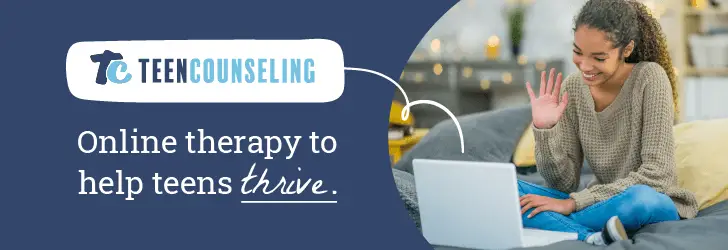As a BetterHelp affiliate, we receive compensation from BetterHelp if you purchase products or services through the links provided
Teen group therapy has become an increasingly popular option to address adolescents’ unique emotional and mental health challenges. As teenagers navigate the difficult transition from childhood to adulthood, they often encounter new stressors, pressures, and emotions that can feel overwhelming. Group therapy provides a safe, supportive environment where teens can connect with their peers, learn valuable coping skills, and develop strategies for managing these difficult emotions.
In group therapy, adolescents participate in guided discussions and experiential activities to facilitate self-discovery, empathy, and emotional growth. Led by a licensed therapist or counselor, these sessions often focus on common issues teens face, such as self-esteem, peer relationships, family dynamics, and academic stress. By sharing their thoughts, feelings, and experiences with others, participants can gain new perspectives, problem-solving skills, and a sense of belonging and emotional support.
Key Takeaways
- Teen group therapy addresses mental health challenges during adolescence
- Group therapy sessions encourage self-discovery and emotional growth
- Participants can gain new perspectives, problem-solving skills, and emotional support
 Understanding Group Therapy
Understanding Group Therapy
Group therapy is a type of psychotherapy that involves a group of people coming together to address shared issues. It’s a valuable tool for those struggling with mental health issues like depression or anxiety. You’ll find that group therapy differs from individual therapy and support groups, and the approach benefits adults and teens alike.
In group therapy, you typically work with a professional group counselor or group psychotherapist who guides the discussion and helps members learn from one another. Group therapy offers a safe and supportive environment to share your experiences and gain new insights.
Some advantages of group therapy include:
- Shared experiences: You’ll meet others facing similar issues, which can help validate your feelings and create a sense of belonging.
- Varied perspectives: Group members bring different backgrounds and viewpoints, providing a broader range of perspectives on your situation.
- New coping strategies: By observing how others deal with challenges, you can learn new ways to handle your struggles.
- Confidentiality: Group therapy maintains a strict code of confidentiality to ensure a safe and supportive environment.
While individual therapy focuses mainly on your issues, group therapy is an opportunity to explore how you relate to others. In some cases, group therapy can be combined with other therapies, such as family therapy, to address multiple areas of concern.
Keep in mind that group therapy may not be suitable for everyone. Individual therapy might be a better option if your mental health needs require more personalized attention. However, don’t be afraid to try group therapy – you might find the support of your peers and the shared wisdom of the group to be invaluable.
Remember, taking care of your mental health is crucial, and exploring various therapies can help you find the best fit for your needs. So, consider giving group therapy a chance and see how it can positively impact your journey towards better mental well-being.
Group Therapy for Teens
In your teen years, life can feel like a rollercoaster of emotions. From dealing with homework to battling self-doubt and loneliness, feeling overwhelmed is easy. Group therapy for teenagers is an amazing way to foster self-expression, develop confidence, and understand emotions.
In a teen group therapy session, you’re not alone. You’ll meet others going through similar experiences, providing much-needed peer support. Everyone can share their thoughts and feelings with open discussions and guided conversations. This sharing can boost your self-awareness, making it easier to navigate the challenges of adolescence.
Some of the things you can expect from teen group therapy sessions include:
- Engaging in activities that promote self-expression, such as art or music
- Open and honest discussions about common adolescent concerns
- Problem-solving exercises to address real-life scenarios
- Practicing communication and social skills in a safe, supportive environment
In group therapy, you’ll also learn healthy coping strategies to deal with the ups and downs of life. Even better, your newfound sense of confidence and self-assurance might make it easier to face any challenges that come your way.
Remember, seeking help when feeling down or lost is a sign of strength. Group therapy for teens exists to make your journey through adolescence smoother and help you emerge victorious, ready to tackle anything life throws at you.

Therapeutic Approaches
Several therapeutic approaches can be employed when addressing teenagers’ needs in group therapy. Each method aims to provide participants a safe and supportive environment while addressing their unique emotional and psychological needs.
Cognitive Behavioral Therapy (CBT) is one popular choice, particularly for short-term treatment. This approach helps teens identify and change negative thought patterns. In group sessions, you’ll notice the focus is on teaching participants how to recognize unhelpful thinking and develop new, healthier habits.
Mindfulness is another effective technique often incorporated into teen group therapy. By promoting awareness of the present moment, mindfulness helps teens manage any overwhelming emotions that may arise. Group exercises may involve guided meditations, breathing techniques, or body scans to enhance self-awareness and emotional regulation.
Incorporating creative outlets into group therapy has also been beneficial for adolescents. Art therapy allows teens to express themselves non-verbally, which can be especially helpful for those struggling to articulate their thoughts and feelings. Processing emotions through artwork can lead to greater self-understanding and emotional healing.
Music therapy is another creative approach gaining traction among therapists working with teens. Music as a therapeutic tool helps participants connect with their emotions while fostering a supportive group dynamic. Sessions may involve listening to or creating music, discussing song lyrics, or engaging in group musical activities like drum circles.
In conclusion, various therapeutic approaches can be used within teen group therapy settings, depending on participants’ specific needs and preferences. By incorporating methods such as CBT, mindfulness, art therapy, or music therapy, mental health professionals can create dynamic, engaging, and supportive spaces to help teenagers on their journey towards emotional well-being.
 How Therapy Helps
How Therapy Helps
Teen group therapy can be a powerful tool for addressing many issues. By participating in a supportive and empathetic environment, you’ll find the space to express your feelings and thoughts openly. Working with others experiencing similar challenges can help you develop new coping skills and discover your inner strength.
One significant benefit of group therapy is the opportunity to explore important issues like grief or other specific concerns. You’ll better understand your emotions as you share your thoughts and feelings, leading to greater self-awareness and resilience.
In addition, teen group therapy can bolster your communication skills. Listening attentively and responding thoughtfully in a group setting will improve interpersonal relationships and increase self-confidence. Building these skills encourages openness and fosters a deeper connection with your group, allowing you to work through problems together.
The collaborative nature of group therapy encourages you to think outside the box, helping you find creative solutions for the issues you face. As you tackle challenges with the support of your peers and the guidance of a trained professional, you’ll undoubtedly develop a stronger foundation for dealing with life’s obstacles.
Remember, participating in teen group therapy is an opportunity to grow personally and emotionally. Embrace the chance to learn from others, nurture your communication skills, and uncover new ways to understand and manage your thoughts and feelings.
 Structure of Group Therapy Sessions
Structure of Group Therapy Sessions
You may encounter both structured and less structured formats in group therapy sessions. Some sessions are built around a specific issue or common challenge, while others allow members more flexibility in what they discuss. Here’s what you can typically expect from the structure of group therapy sessions:
When group therapy sessions are structured, they usually focus on a particular issue or challenge relevant to the members, such as addiction, anxiety, or depression. These sessions are facilitated by a therapist who guides the conversation and ensures that members stay on topic. A structured session might involve:
- A set agenda
- Pre-determined discussion topics
- Specific activities or exercises
On the other hand, less structured group therapy sessions provide more freedom for participants to explore their thoughts and feelings. While a therapist still oversees the conversation, there may be less of a predetermined plan. This approach can also create a safe place for teens to express themselves without feeling confined to a specific topic.
One crucial aspect of group therapy is maintaining a consistent group of members, whether the session is structured or less structured. This consistency allows teens to build trust and form strong bonds with one another, helping foster an environment of support and understanding.
Group therapy sessions can be designed to run for a fixed length or an indefinite period. Fixed-length programs might have a set number of weeks, while open-ended programs allow members to come and go as needed. Either way, the primary goal is to create a space where all participants feel comfortable sharing their experiences and working on personal growth.
In summary, group therapy sessions can range from highly structured to more flexible formats, depending on the needs and preferences of the teens involved. Ultimately, finding a balance that encourages open communication and creates a supportive environment for successful therapy is essential.
Group Therapy Vs Individual Therapy
Each approach has benefits for teen group therapy and individual therapy, depending on your needs and mental health concerns. In this section, we will explore the advantages of both types of therapy to help you determine which might be the best fit for you.
Group therapy often provides a supportive environment where you can build a sense of connection with others who share similar struggles. This can create a sense of belonging and decrease feelings of isolation. Some specific benefits of group therapy include:
- Learning from the experiences and insights of others
- Developing improved communication and social skills
- Gaining multiple perspectives on your problems
- Receiving feedback from a diverse group of individuals
- Building a support network to rely on beyond therapy
On the other hand, individual therapy allows for a more personalized approach to your mental health journey. In one-on-one sessions with a therapist, you can focus entirely on your thoughts and feelings. Benefits of individual therapy can include:
- Tailored treatment plan addressing your unique needs
- Opportunity to explore deeper personal issues in a private setting
- Progress at your own pace, with undivided attention from the therapist
- More flexible scheduling options
As you weigh your options, consider what will best help you achieve your mental health goals. While some may prefer the camaraderie and multiple perspectives of group therapy, others might feel more comfortable delving into personal matters one-on-one. Choosing the therapy format that best supports your journey toward improved mental well-being.
Choosing and Connecting with a Therapist
Finding the right therapist is crucial for the success of your teen’s group therapy journey. First, you must determine whether you seek a general or specialized group counselor. Depending on your location, such as New York, you’ll have a diverse range of therapists.
To help streamline your search, consider the following tips:
- Credentials and Experience: Look for therapists with relevant credentials, such as licensed social workers or psychologists. At the same time, check for their experience working with teenagers, as teen-specific expertise can make a significant difference.
- Specializations: If your teen is struggling with a particular issue, such as depression or anxiety, opt for a therapist specializing in those areas. Specialized group counselors will better understand their needs and can provide tailored support.
- Accessibility: Choose a therapist within a reasonable distance between you and your teen. It’s essential to consider factors like convenient appointment times and availability via phone or email for support outside of sessions.
- Recommendations: Word-of-mouth is a powerful tool. Ask friends, family, or even school guidance counselors for recommendations of therapists who have worked well with teens in group settings.
Once you’ve found some potential therapists, schedule an initial meeting with each of them. During this appointment, make sure to:
- Discuss your concerns and their approach to group therapy.
- Ask about the size and structure of the group, as well as the goals for each session.
- Gauge if your teen feels comfortable and connected with the therapist.
Remember, trust and rapport are vital for the therapeutic process. Don’t hesitate to explore different options until you find the right fit for your teen’s group therapy journey.

Group Therapy for Specific Issues
In group therapy, you can address various specific issues that teens often face. Attending these sessions can be beneficial for improving self-esteem, building trust, and learning how to cope with difficult emotions. Here are some common issues that group therapy can help with:
Anxiety: Anxiety is a natural emotion that can sometimes become overwhelming. Group therapy allows you to identify triggers and develop coping strategies to manage your anxiety in a supportive environment. Sharing your experiences and listening to others can provide valuable insights.
Grief: Losing a loved one can be an incredibly difficult experience. Grief-focused group therapy helps you process these emotions by connecting with others experiencing the same feelings. This support can prove critical in your journey towards healing.
Trauma: Experiencing traumatic events can lead to intense fear, anger, and sadness. Group therapy sessions can help you navigate these emotions, learn coping skills, and even reduce the symptoms of post-traumatic stress disorder (PTSD).
Eating Disorders: Struggling with an eating disorder can be incredibly isolating. Joining a group therapy session can provide you with a comfortable space to share your experiences and develop healthier eating habits with the guidance of a professional.
During these sessions, you and your peers will discuss various topics, such as:
- Recognizing and understanding the thoughts and emotions behind specific issues
- Techniques for managing stress, anxiety, and trauma effectively
- Developing healthier habits and routines
- Building strong connections and trust within the group
Group therapy can be an empowering experience for teens facing these challenges. As you attend sessions, you will learn that you’re not alone, and with your peers, you can work towards overcoming the obstacles you’re facing. Remember that healing takes time, and being patient with yourself and others in the group is essential.
Dealing with Negative Emotions
Anger management: You might feel anger boiling or frustration ready to explode. Try deep breathing exercises or counting to ten to calm your nerves. Remember that expressing your anger healthily is essential for your well-being.
Grieving: Losing someone or something dear to you is never easy. Be gentle to yourself during these challenging times, and if you feel ready, consider sharing your feelings with others in the group. They might have experienced similar emotions and can connect with what you’re going through.
Battling loneliness: It’s important to remind yourself that you’re not alone as you participate in group therapy. Reach out to others in your group sessions. Simple gestures like a friendly smile or a heartfelt “hello” can help break the ice and lead to connections.
Overcoming self-doubt: We often judge ourselves more harshly than others do. Recognize that no one is perfect and that making mistakes is part of the journey. Set small, achievable goals and celebrate your accomplishments along the way.
Addressing anxieties: Facing your fears head-on can feel incredibly empowering. Share your anxieties with your group; you can create a supportive environment to confront them. Practicing mindfulness or relaxation techniques can also help alleviate anxiety.
Navigating emotions: Emotions can sometimes feel overwhelming. Experiment with healthy outlets to express them, such as journaling or art therapy. Make sure to permit yourself to feel both positive and negative emotions.
Distress tolerance: Learning to cope with distressing emotions is an essential skill. Develop coping strategies like distraction, self-soothing, or changing the situation to gain control over your emotional state during those intense moments.
In group therapy, remember you’re not alone in your journey. Embrace the support of your peers and the therapeutic environment to help you face and manage negative emotions. Lean on this collective strength to grow and become more resilient.
Communication Skills Training
Good communication is vital for teens in group therapy, as it promotes understanding and interpersonal effectiveness. Let’s dive into some strategies that can help improve these skills.
The first step in building strong communication skills is active listening. Encourage the teens to:
- Maintain eye contact
- Nod in agreement when appropriate
- Use facial expressions and body language to show they’re listening
By doing this, they demonstrate empathy and understanding, which is crucial for healthy group dynamics.
Another key aspect is being open and honest. Encourage your group to:
- Share their thoughts, feelings, and experiences
- Use “I” statements to own their emotions
- Practice assertiveness
Openness helps the group members bond, while assertiveness allows them to express themselves without offending others.
Finally, the art of effective communication also involves resolving conflicts. Equip your group with strategies such as:
- Identifying the root cause of the disagreement
- Keeping a cool head and maintaining respect for each other
- Collaboratively working towards a solution
These steps promote a healthy group environment and help them navigate challenges outside the therapy setting.
Remember, practice makes perfect. Encourage your group members to use these enhanced communication skills daily. This way, they will become more comfortable and adept in interacting with others, improving their overall interpersonal effectiveness.
Benefits of Group Therapy
Group therapy offers many advantages for teens looking to improve their emotional well-being. This section will explore some main benefits of attending group therapy sessions.
One of the key benefits is the opportunity to develop and enhance coping skills. By participating in group therapy, you can learn and practice new strategies for dealing with difficult emotions, experiences, and situations. Additionally, as your peers share their unique approaches, you’ll gain various techniques to draw upon when needed.
The support group aspect is another invaluable component of group therapy. You’ll find a sense of community and belonging when surrounded by other teens going through similar struggles. This support will help to alleviate feelings of isolation and reinforce the idea that you’re not alone in your journey.
Addressing one’s feelings is crucial to personal growth, and group therapy fosters an environment that encourages emotional exploration. Through open and honest discussions, you’ll learn to understand better your emotions and how to express them in healthy ways.
By engaging in these conversations, you’ll also strengthen your communication skills. Active listening, empathy, and respectful dialogue are vital components of group therapy, which can also be applied to other aspects of your life.
Improved self-esteem and confidence are two additional outcomes of group therapy. By receiving validation and encouragement from others, you’ll gain a reinforced sense of self-worth, which can lead to increased confidence in your abilities.
Emotional regulation is another area that can be enhanced through group therapy. By being exposed to various perspectives and coping strategies, you’ll discover new ways to manage and regulate your emotions in challenging situations.
Finally, group therapy can help you confront and address your anxieties. Sharing your fears and worries with others provides a safe space for discussing these concerns and finding possible solutions.
In summary, teenage group therapy offers numerous benefits in coping skills, support groups, emotional expression, communication skills, self-esteem, confidence, emotional regulation, and anxieties. By attending these sessions, you’re taking a significant step toward personal growth and overall emotional well-being.
Challenges in Group Therapy
Group therapy offers significant benefits, yet it also poses some unique challenges. Understanding these challenges will help you navigate the process more effectively as a participant or a facilitator.
Diverse Range of Issues: In a teen group therapy setting, you’ll encounter various disorders and emotional struggles, such as grief, trauma, eating disorders, and PTSD. Addressing each issue while maintaining a cohesive and supportive environment can be challenging. Remember that group therapy aims to create an inclusive space where everyone can share and learn from each other’s experiences.
Differences in Communication Styles: People express themselves differently; some are more open, while others are hesitant or shy. Encouraging everyone to participate and establishing ground rules for respectful communication can help create a comfortable atmosphere for sharing personal experiences.
- Privacy Concerns: Confidentiality is crucial in group therapy. However, some may worry about their privacy being compromised or fear judgment. Addressing these concerns early on and emphasizing the importance of confidentiality within the group can help build trust among members.
Balancing Individual and Group Needs: It is essential to balance addressing each person’s specific needs while working together. This is particularly challenging when members have contrasting approaches or coping strategies. Over time, members can benefit from one another’s strengths and perspectives, fostering personal growth.
As you participate in teen group therapy, remember these challenges and remind yourself that change takes time and effort. Empathy, patience, and mutual support will go a long way in overcoming obstacles while fostering healing and growth.
Social and Emotional Growth
As a teen participating in group therapy, you will experience various social and emotional growth benefits. This growth plays a crucial role in your overall well-being and ability to navigate adolescence successfully.
One of the main aspects of social and emotional growth is understanding your feelings and emotions. In group therapy, you can safely explore your emotions in a supportive environment. You’ll learn how to identify and express your feelings with the guidance of a trained professional and the support of your peers.
Developing your identity is another essential part of growing up. Group therapy provides a platform to explore your values, beliefs, and interests among like-minded peers, helping you better define your sense of self. Your self-esteem and confidence will likely increase as you interact with others and share your experiences.
Emotional regulation is a vital skill that group therapy can help you develop. By understanding your emotions, you can learn to manage them effectively, keeping them within reasonable levels even when faced with challenges. This ability will help prevent emotional outbursts and allow you to maintain composure when facing difficult situations.
Self-expression is an important aspect of emotional growth that group therapy fosters. Within the setting of a group, you have the opportunity to express your thoughts and feelings without fear of judgment. This openness allows you to gain insight from the perspectives of others, helping you work towards personal growth.
By participating in group therapy, you can experience significant progress in your social and emotional growth, leading to a more fulfilling and balanced life. Remember, this journey is unique to you, and the benefits you gain will depend on your willingness to actively participate and engage with your peers and the therapeutic process.
 Therapy and Support at Home
Therapy and Support at Home
It’s essential to remember that therapy and support can extend beyond professional settings and into your home. When it comes to teen group therapy, involving family members and creating a conducive environment for growth and self-awareness at home can boost the overall effectiveness of the therapeutic process.
Family therapy can be a strong pillar in this journey. By engaging in family-oriented therapy sessions, you enable open communication and cultivate an understanding of the issues faced by the teen. Different perspectives shared during these sessions can help everyone in the family to better empathize with each other’s feelings and develop new coping strategies.
In addition to family therapy, a great way to reinforce support is by joining support groups. Such groups provide a safe space to share experiences, discuss coping mechanisms, and learn from others facing similar challenges. Teenagers often benefit from interacting with their peers who have gone through relatable experiences. Participating in relevant support groups makes you feel less isolated and more encouraged to work on self-improvement.
Here are some ideas to foster a supportive atmosphere at home:
- Create a judgment-free zone: Offer an environment where your teen feels confident to express their feelings without fear of judgment, ridicule, or dismissal. This can lead to increased self-awareness and more productive therapy sessions.
- Establish open communication: Encourage honest dialogue between family members. Keeping the lines of communication open will make discussing any emotional or mental health issues easier.
- Stay informed: Learn more about psychotherapy and other therapeutic resources by attending seminars or reading articles. Knowing about therapy methods and techniques can help you better support your teen at home.
Remember, therapy doesn’t have to be exclusively office-based. Your home can become a valuable personal growth and healing space with the right tools, support, and understanding. By incorporating family therapy, engaging with support groups, and creating a nurturing environment at home, you can significantly improve your teen’s journey toward self-awareness and emotional well-being.

Group Therapy for Substance Abuse
No one should feel alone in their battle against addiction. Group therapy is a fantastic way to support and receive support from others who understand your struggles. In this journey together, you’ll develop the skills and confidence to overcome substance abuse and stay on the road to recovery.
During group therapy for substance abuse, you can expect a variety of activities and discussions led by a trained therapist. The sessions will typically focus on developing and strengthening coping skills, building healthy relationships, and boosting self-esteem. Some of the topics and strategies that you may encounter include:
- Identifying and managing trigger situations
- Developing effective communication skills
- Learning healthy ways to cope with stress, frustration, and anger
- Strengthening relationships with supportive friends and family
- Adopting responsible decision-making skills
In many cases, you’ll discover that sharing your experiences, listening to others, and feeling a sense of camaraderie can go a long way in preventing relapse and maintaining recovery. You’ll even learn from others’ successes and challenges, gaining valuable insights into managing your addiction and personal growth.
So, be open to new perspectives and trusting the therapy process. Group therapy can make all the difference in your journey, helping you gain the confidence and support needed to overcome substance abuse and reclaim control over your life. Your success and well-being matter and group therapy can be that crucial support system that helps you achieve a happier, healthier future.
Spotting the SOS Signals: When is Therapy Needed
Listen up! Life is tough, especially for teenagers who feel lost and disconnected. Don’t ignore those flashing neon alerts that you or someone you know might need to talk to someone. If you’re struggling with school stress, rocky relationships, or constantly overwhelmed, it’s time to take action. Consider therapy. It’s okay to ask for help when you need it. Don’t let life get the best of you. Take control and reach out today!.
The Group Therapy Treasure Map: What Are We Aiming For
So, you’re thinking about teen group therapy, but what can you expect? It’s like an adventure club for your emotions! Here are the goals usually at the top of the list:
- Self-Discovery: Finding the ‘you’ in you.
- Emotional Resilience: Learning to bounce back from life’s curveballs. ⚾
- Peer Support: Realizing you’re not alone; your struggles are shared.
- Coping Skills: Gaining tools to handle stress, anger, or anxiety.
- Better Communication: Learning the art of saying what you mean and understanding others.
Counting the Milestones: Signs Your Ship is Sailing Smoothly
Progress in therapy isn’t always a straight line; it’s more like the waves of the sea—sometimes high, sometimes low, but always moving. Here’s how to know you’re making headway:
- Improved Mood: You’re not just surviving; you’re starting to enjoy life!
- Better Relationships: Suddenly, talking to people doesn’t feel like walking on eggshells.
- Decreased Anxiety: The butterflies in your stomach are flying in formation now.
- Greater Self-Awareness: You understand your emotions rather than being controlled by them.
- Active Participation: You’re engaged in your life, making choices, not just nodding.
The road to emotional well-being is a journey, not a sprint. Celebrate the small victories, and remember, setbacks are just setups for comebacks.
Keep on sailing, and don’t forget to enjoy the view. After all, you’re the captain of your ship! ?⚓
Frequently Asked Questions
What are some effective activities for teen group therapy?
In teen group therapy, engaging activities can facilitate communication and growth. Some activities to consider include:
- Icebreakers: Help teens get to know each other and build rapport.
- Role-playing: Allows them to explore different perspectives and problem-solving techniques.
- Expressive arts: Encourages emotional expression and self-discovery through drawing, painting, or writing.
- Team-building exercises: Strengthens trust and cooperation among group members.
- Mindfulness practices: Promotes self-awareness and emotional regulation.
How can art therapy benefit adolescents?
Art therapy offers adolescents a unique way to express their feelings, thoughts, and experiences. Some benefits include:
- Encouraging creative expression may reduce stress and anxiety.
- Facilitating communication of emotions that may not be easy to articulate verbally.
- Boosting self-esteem by providing a sense of accomplishment.
- Learning new coping skills through creative problem-solving.
- Enhancing social skills through group interactions and shared experiences in a safe environment.
What topics are commonly discussed in teen group therapy?
Teen group therapy typically addresses various issues that adolescents face, including:
- Mental health concerns, such as anxiety, depression, and stress.
- Peer and family relationships, including conflict resolution and communication skills.
- Self-esteem and self-image, including body image and self-acceptance.
- Substance abuse and addiction.
- Life transitions include adjusting to high school, college, or the workforce.
How does group therapy help with adolescent depression?
Group therapy can be beneficial for adolescents dealing with depression, as it:
- Provides a supportive environment with peers who understand their struggles.
- Encourages open communication and sharing of feelings and experiences related to depression.
- Offers guidance from a trained therapist who can provide coping strategies and tools for managing symptoms.
- Reduces feelings of isolation, building connections with others.
- Reinforces positive behaviors, such as self-care and setting realistic goals.
What are some telehealth activities for adolescent therapy?
Telehealth provides opportunities for remote adolescent therapy. Some activities that can be adapted for this setting include:
- Virtual icebreakers to foster connections with group members.
- Digital art therapy uses drawing or painting applications to express emotions.
- Online journaling or blogging to practice self-reflection and emotional expression.
- Video-mediated role-plays or discussions to develop social and problem-solving skills.
- Guided meditation or relaxation exercises that can be led by a therapist over video chat.
How to engage young adults in group therapy sessions?
Engaging young adults in group therapy sessions can be achieved by:
- Creating a safe and supportive environment that fosters trust and open communication.
- Utilizing age-appropriate and relatable activities that focus on their interests and concerns.
- Encouraging active participation by soliciting input and ideas from group members.
- Providing opportunities for them to take on leadership roles within the group.
- Modifying activities or discussions to maintain their attention and interest while addressing their unique needs and developmental stages.
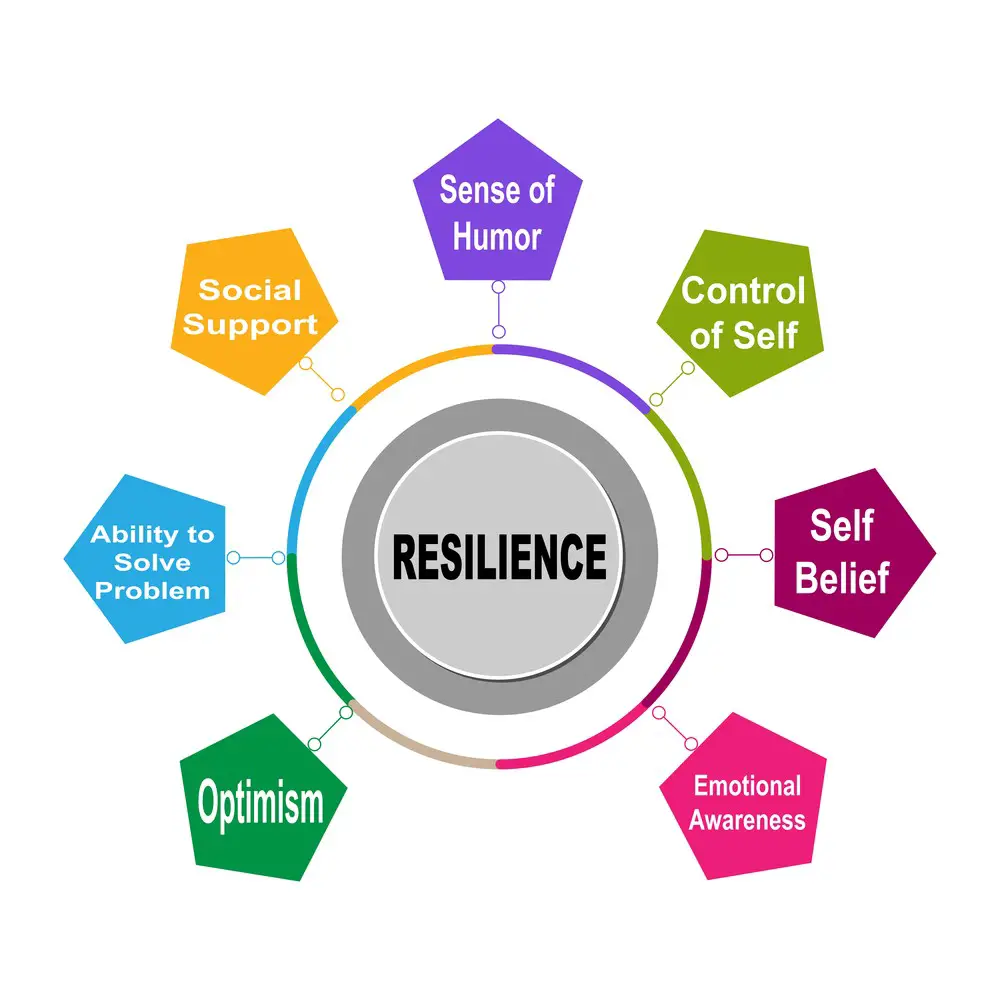
The Survivor Turned Thriver: Meet Jacob Maslow, Your Friendly Guide to Emotional Resilience
Hey there, I’m Jacob Maslow. You might say I’ve weathered more than a few storms, literally and metaphorically. I survived the harrowing events 9/11, losing over a thousand colleagues while working on the 101st floor. Life turned a corner, and I transitioned to a work-from-home setup, raising our kids while my ex worked full-time, often into the night. But here’s the kicker: the rug was pulled from under me even after a loving shared custody arrangement for years. ?
Plot Twists and Empty Rooms
Fast forward to now. My two kids, whom I adore more than life itself, live blocks away, yet might as well be a world apart. My ex cut off all my access to them about nine months ago. The two empty bedrooms in my three-room apartment are a constant, eerie reminder of their absence. It’s tough, no doubt, but it’s not the end. ?️
My Trusty Copilot: BetterHelp
If you’re wading through emotional chaos, know that I am too, and BetterHelp has been my anchor in these stormy seas. They operate TeenCounseling, which is a godsend if adolescents are going through their trials. I can’t recommend them highly enough, and yes, full disclosure: I’m an affiliate.
Pillars of My Resilience: Lexapro and Long Walks
I’m no stranger to therapy; call me a therapy veteran. Lexapro has been a crucial ally in managing my mental health. I take long walks daily, feeling each step as a move toward emotional balance. Trust me, solitude can sometimes be the best company.
Navigating the Narcissism Quagmire
Now let’s talk about the elephant in the room—narcissism. My ex has a severe case, going to great lengths to manipulate narratives and weaponize our kids. The courtroom has become another battlefield, but we’ll get there; justice has a way of coming around.
My Virtual Pen as My Sword
Through all this, I’ve written about mental health and narcissism. I want to use my experience to guide those traversing similar mazes. I also run a legal site focusing on custody conflicts and non-compliance. You’re not alone in this and don’t have to be.
The Light at the End of the Tunnel is Not a Train
Through all the tribulations, I’ve realized that you’re stronger than your challenges. Resilience is my middle name, and it can be yours, too. And remember, you’re never alone when you’re in your own good company. ✨
Cheers to battling the storms and basking in the rainbows that follow.
Feel free to reach out if you’re navigating your emotional jungles; I’m always here to lend an ear or share a tip. Take care!
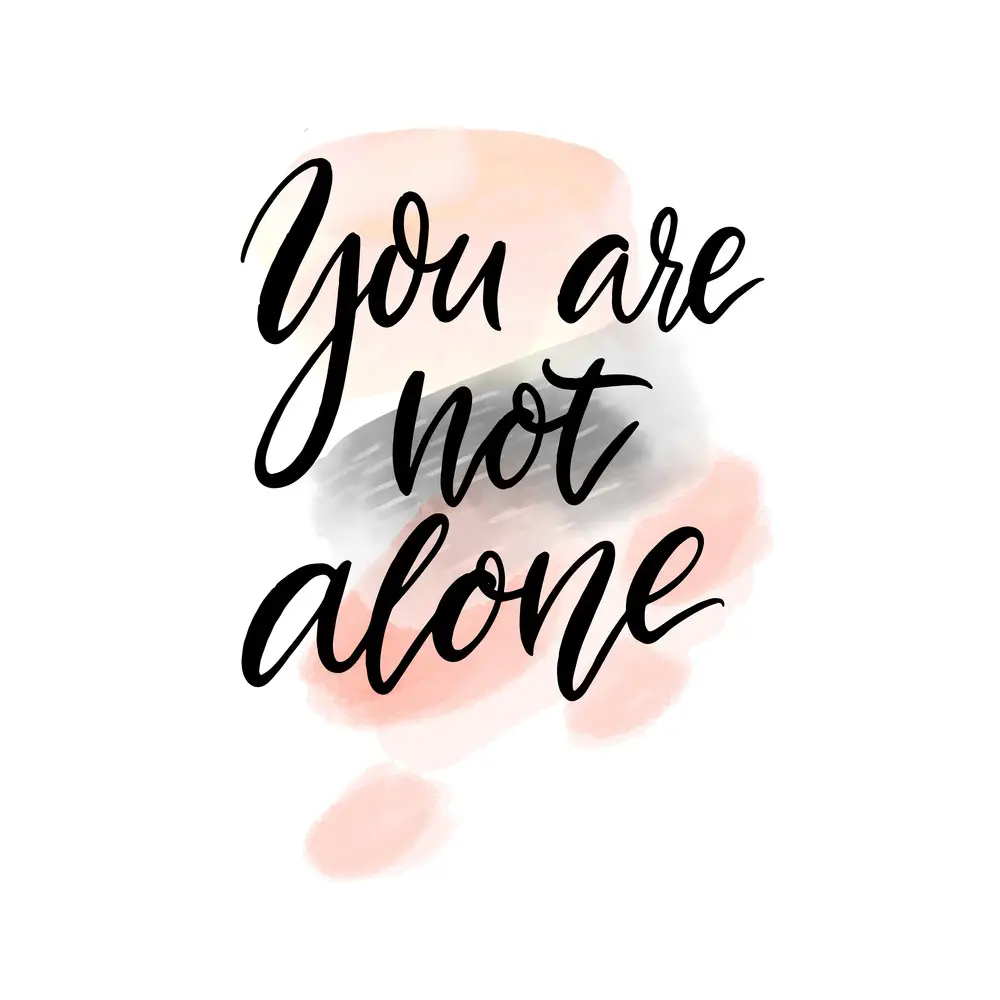
- Breaking the Silence: Why Men’s Mental Health Matters More Than Ever - April 15, 2025
- How to Transform a Home’s Patio Space into a Relaxing Space - March 23, 2025
- 5 Strategies to Use a Cell Phone to Help Manage Your Stress - March 23, 2025
This site contains affiliate links to products. We will receive a commission for purchases made through these links.

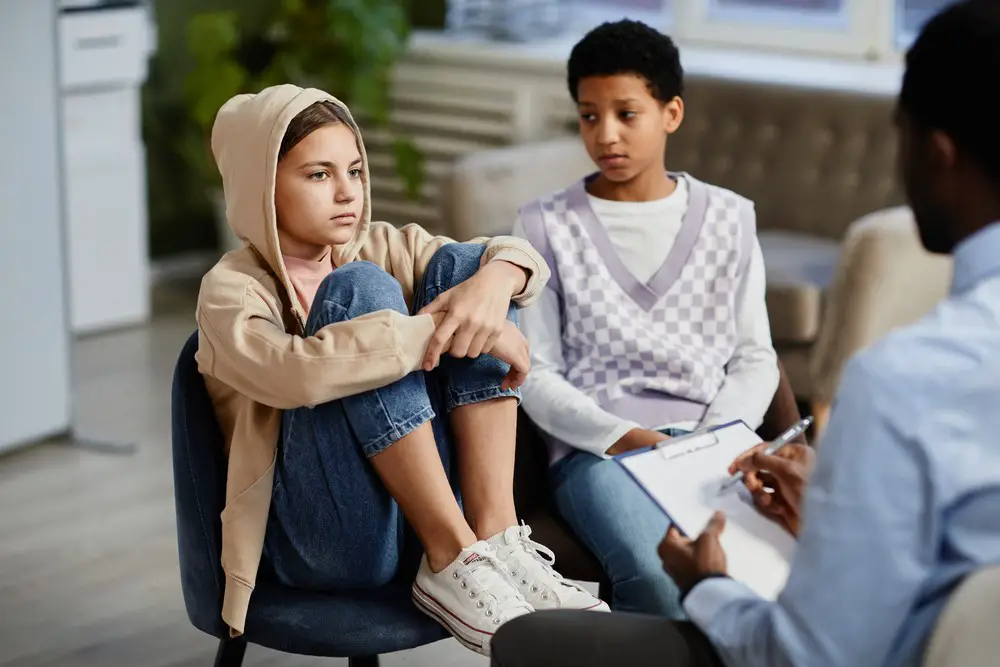
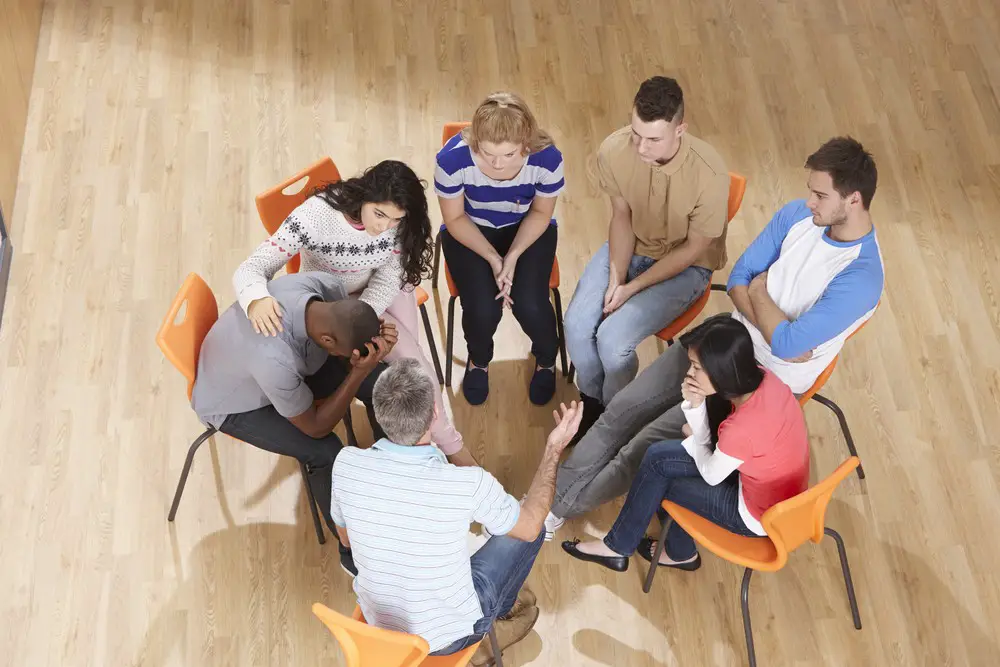 Understanding Group Therapy
Understanding Group Therapy How Therapy Helps
How Therapy Helps Structure of Group Therapy Sessions
Structure of Group Therapy Sessions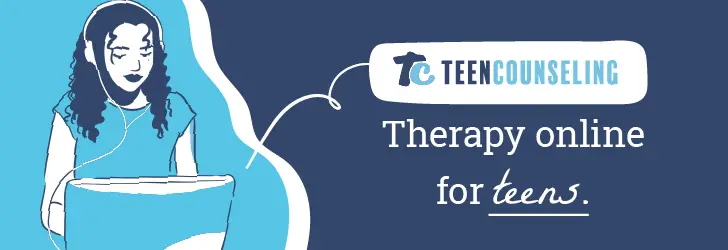
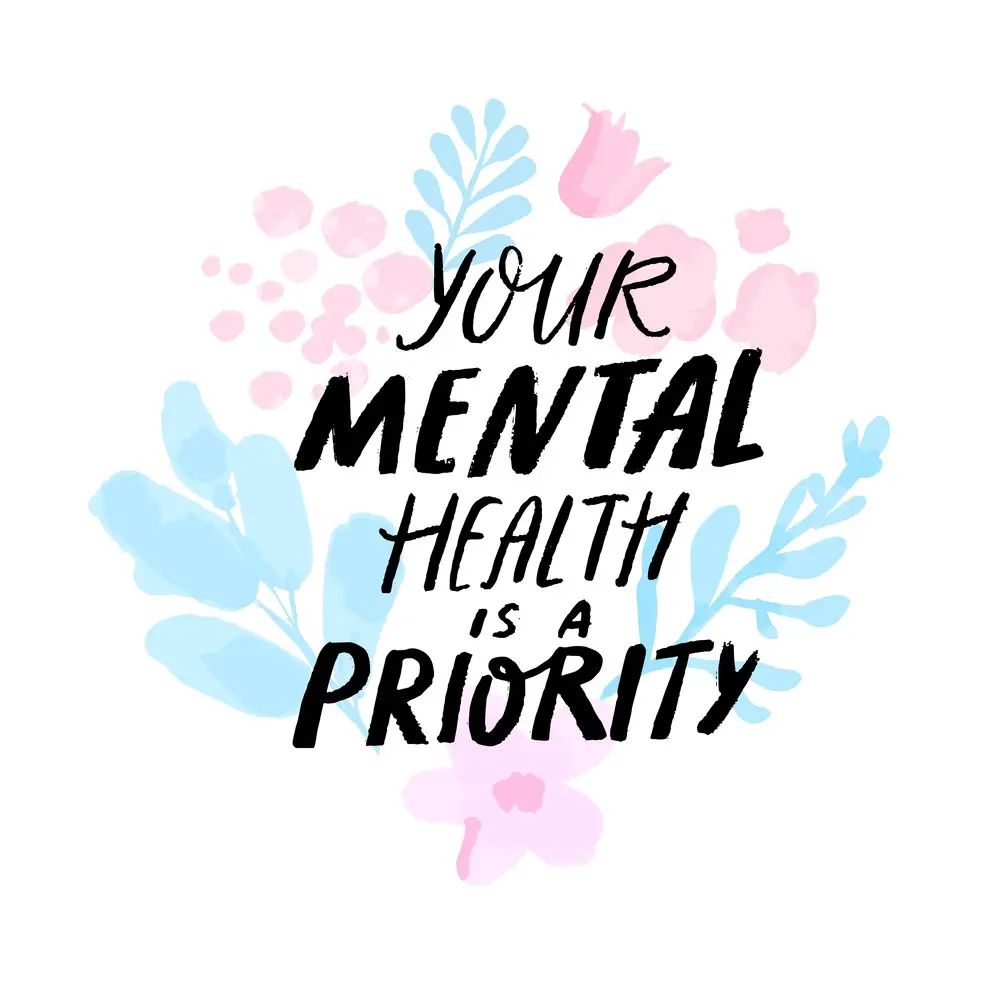 Therapy and Support at Home
Therapy and Support at Home